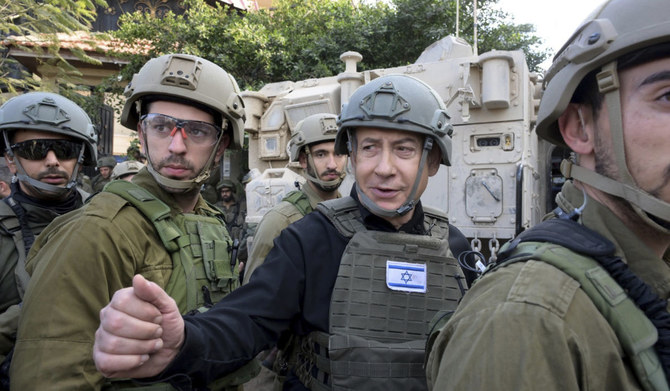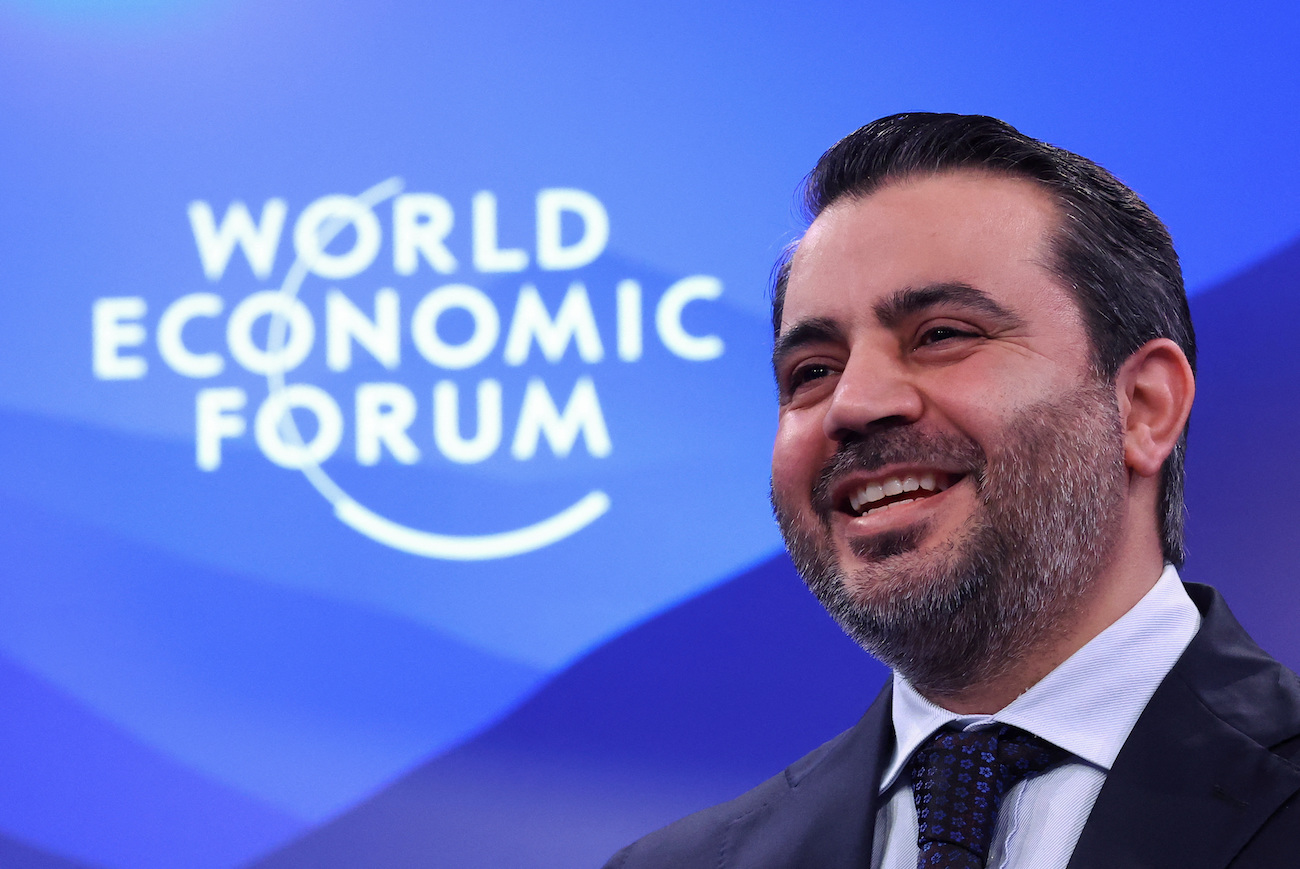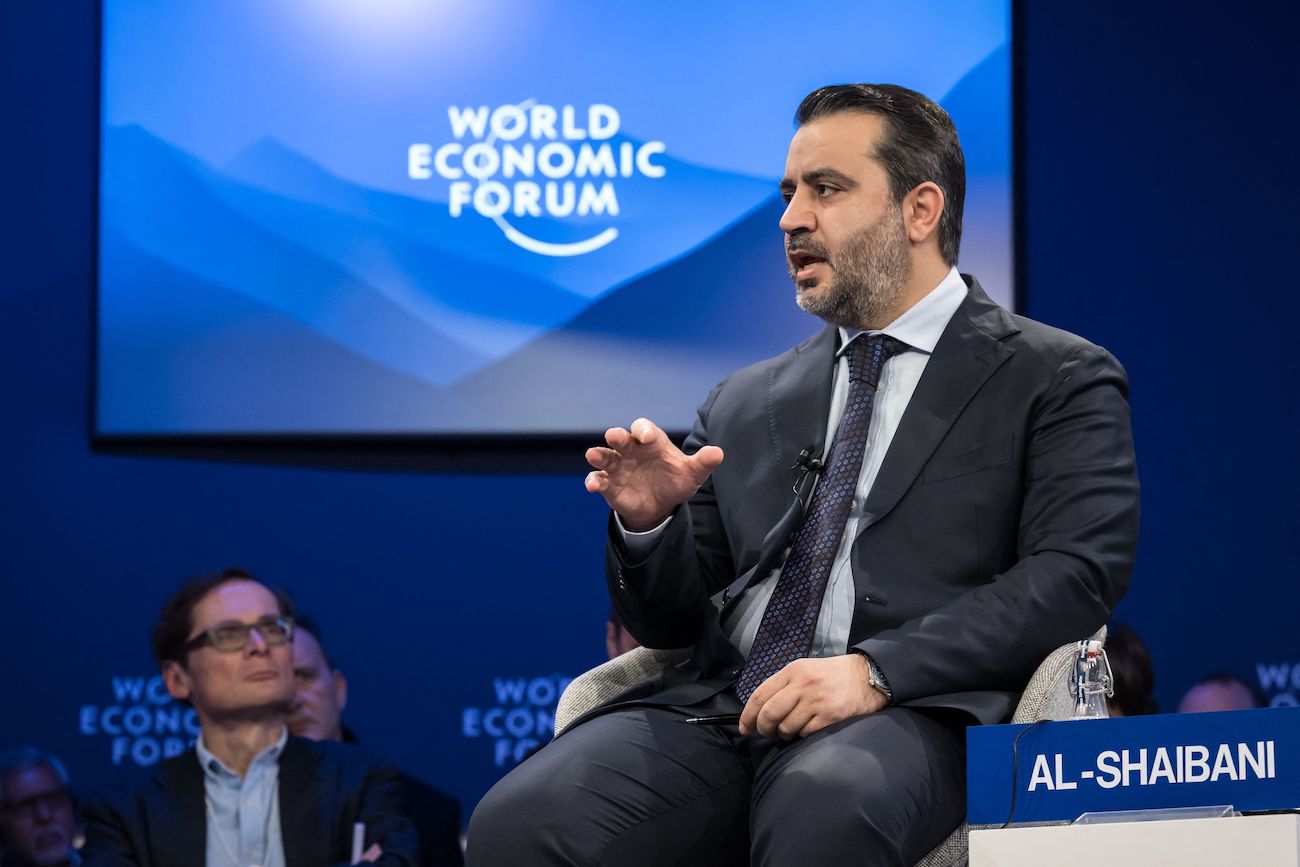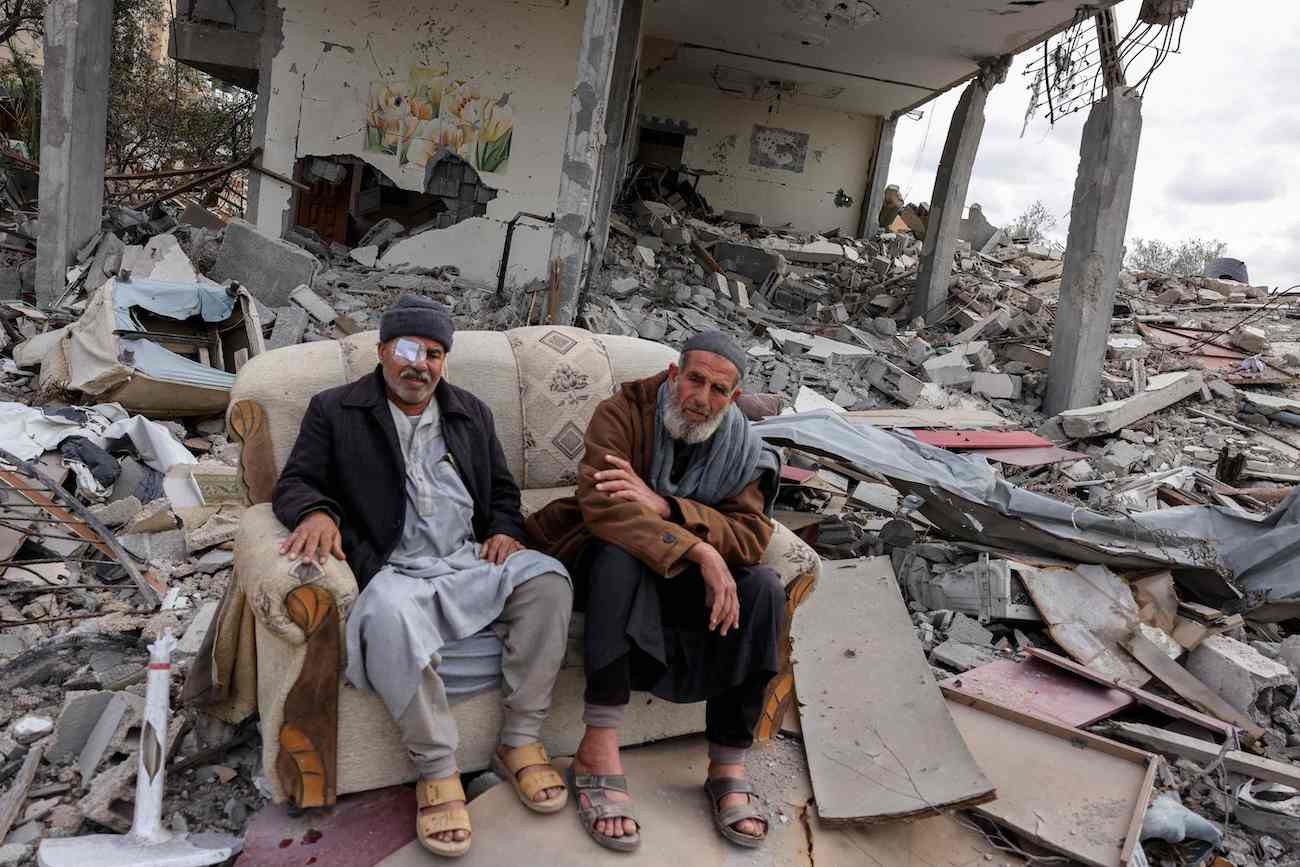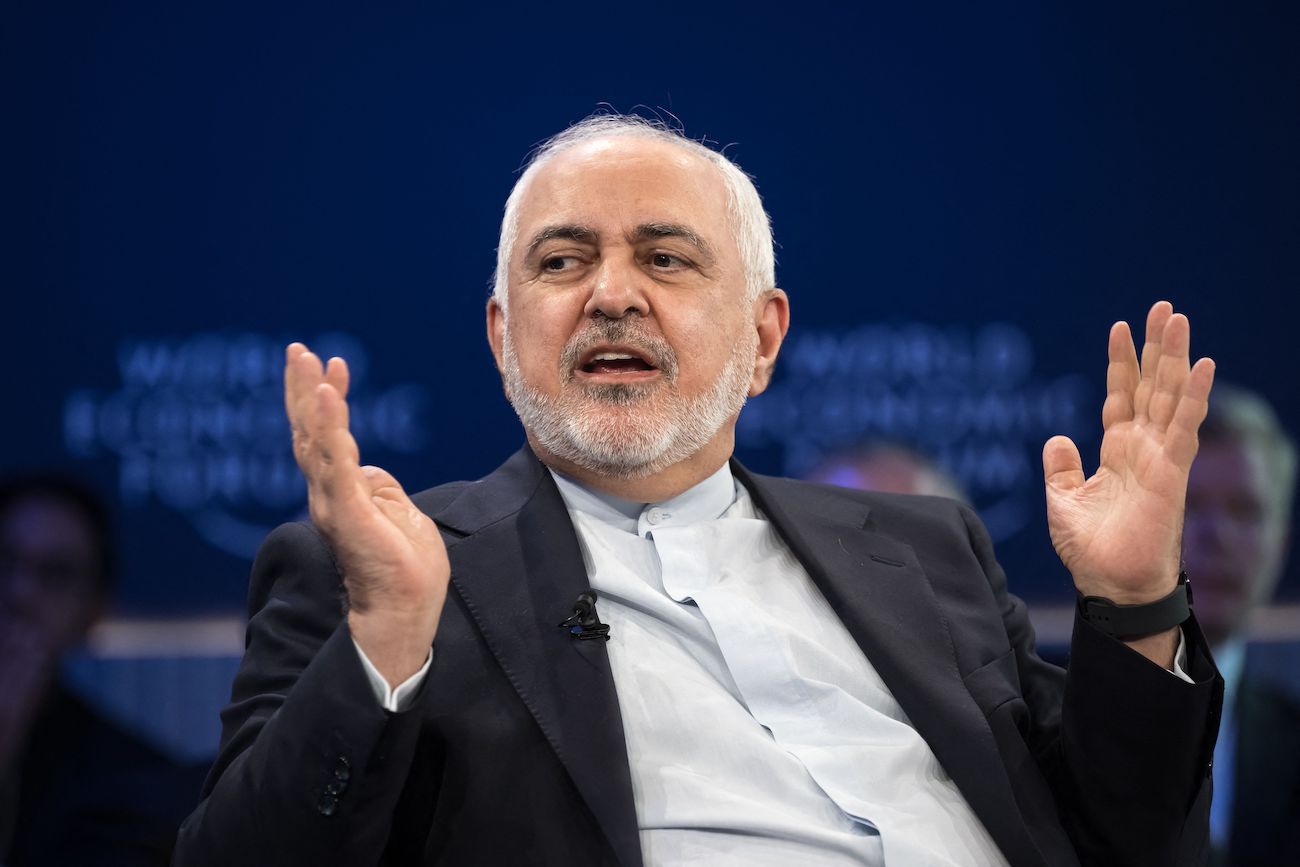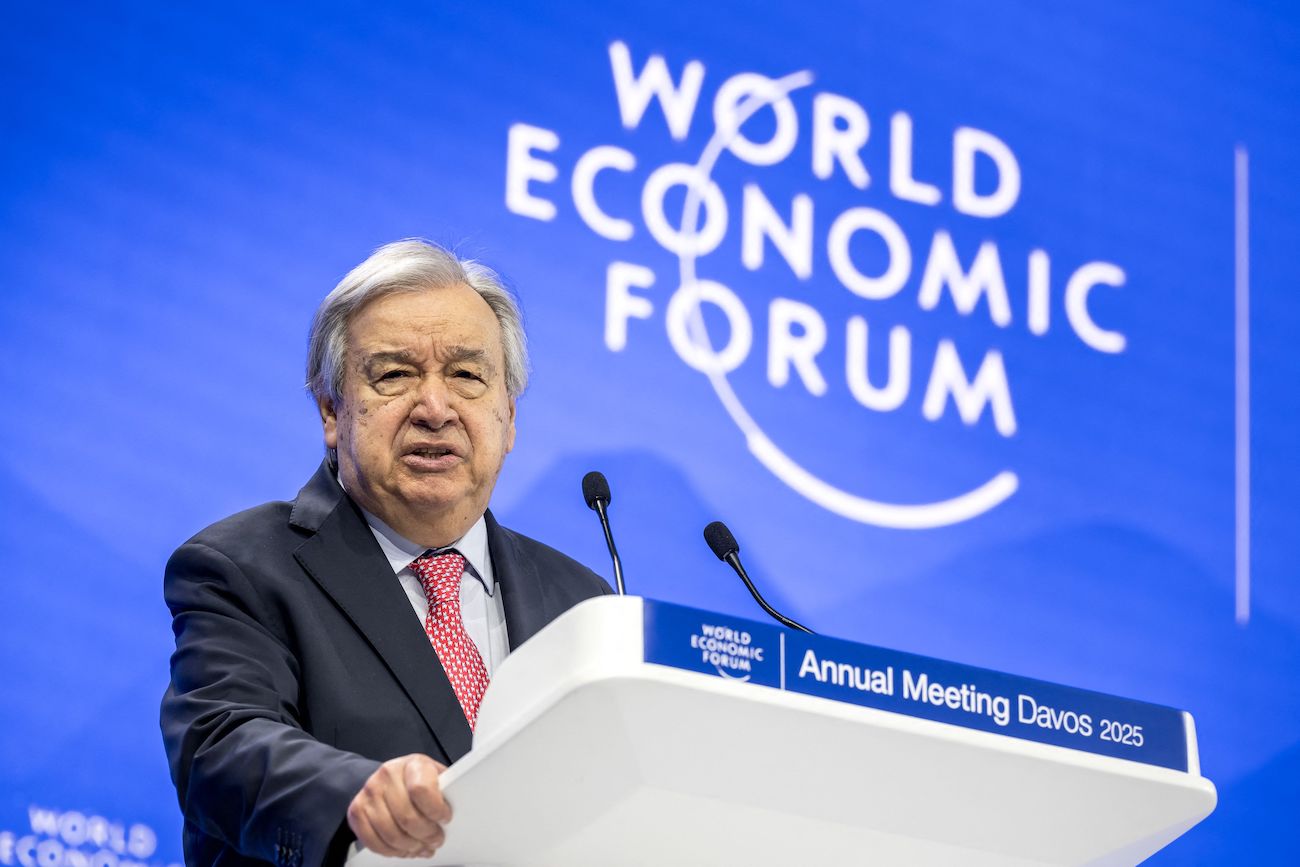RAFAH: The health ministry in Gaza said on Sunday at least 165 people were killed over the previous 24 hours while Israel's Prime Minister Benjamin Netanyahu pushed back after the International Court of Justice ruling to limit deaths.
In response to the court ruling to limit destruction in the military’s Gaza offensive, Netanyahu declared that “we decide and act according to what is required for our security.”
So far at least 26,422 people have been killed since the war broke out on October 7, according to the health ministry in Gaza. A ministry statement said at least another 65,087 have been wounded since the fighting began.
Israel’s military is under increasing scrutiny now that the top United Nations court has asked Israel for a compliance report in a month. The court’s binding ruling on Friday stopped short of ordering a ceasefire, but its orders were in part a rebuke of Israel’s conduct in its nearly 4-month war against Gaza’s Hamas rulers.
The UN agency for Palestinian refugees, the main organization aiding Gaza’s population amid the humanitarian disaster, said nine countries suspended their funding following Israel’s allegations that a number of Gaza staff members participated in the Oct. 7 Hamas attack that sparked the war. Those include the United States, Britain, Italy and Finland.
Agency chief Philippe Lazzarini said it would be “immensely irresponsible” to sanction it and the community it serves at such a desperate time for Gazans, especially after it quickly fired the “small group” of staffers. The 13,000-strong agency, which relies almost entirely on countries’ contributions, said it now runs shelters for over 1 million people and its lifeline “can collapse anytime now.”
The Israel-Hamas war has killed more than 26,000 Palestinians, according to local health officials, destroyed vast swaths of Gaza and displaced nearly 85 percent of the territory’s 2.3 million people. The Hamas attack in southern Israel killed about 1,200 people, mostly civilians, and about 250 hostages were taken.
At least 174 Palestinians were killed over the past day, the Health Ministry in Gaza said. It does not distinguish between combatants and civilians in its tolls, but has said about two-thirds are women and children.
Israel holds Hamas responsible for civilian casualties, saying the militants embed themselves in the local population. Israel says its air and ground offensive in Gaza has killed more than 9,000 militants.
Israel’s military said it had conducted several “targeted raids on terror targets” in the southern city of Khan Younis in addition to the airstrike in nearby Rafah targeting a Hamas commander.
Bilal Al-Siksik said his wife, a son and a daughter were killed in the Rafah strike, which came as they slept. He said the UN court ruling meant little since it did not stop the war.
“No one can speak in front of them (Israel). America with all its greatness and strength can do nothing,” he said, standing beside the rubble and twisted metal of his home.
More than 1 million people have crammed into Rafah and the surrounding areas after Israel ordered civilians to seek refuge there. Designated evacuation areas have repeatedly come under airstrikes, with Israel saying it would go after militants as needed.
In Muwasi, a narrow coastal strip once designated as a safe zone but struck in recent days, displaced Palestinians tiptoed on sandaled feet through garbage-lined puddles in damp and chilly weather. Walls of sheets and tarps billowed in the wind. A mother wept after rain leaked in and soaked the blankets.
“This is our life. We have nothing and we left (our homes) with nothing,” said Bassam Bolbol, whose family ended up in Muwasi after leaving Khan Younis and finding no shelter in Rafah.
Frustration with the uncertainty grows. As thousands of Gazans fled Khan Younis toward Muwasi, Israel shared video showing a crowd appearing to call for bringing down Hamas.
The case brought by South Africa to the UN court alleged Israel is committing genocide against Gaza’s people, which Israel vehemently denies. A final ruling is expected to take years.
The court ordered Israel to urgently get aid to Gaza, where the UN has said aid entering the territory remains well below the daily average of 500 trucks before the war. The UN also says access to central and northern Gaza has been decreasing because of “excessive delays” at checkpoints and heightened military activity.
The World Health Organization and the medical charity MSF issued urgent warnings about the largest health facility in Khan Younis, Nasser Hospital, saying remaining staff could barely function with supplies running out and intense fighting nearby.
WHO footage showed people in the crowded facility being treated on blood-smeared floors as frantic loved ones shouted and jostled. Cats scavenged on a mound of medical waste.
“These are the only painkillers left we have. If you want to count them, they are only for maybe five or four patients,” Dr. Muhammad Harara said.
Gaza’s Health Ministry spokesperson Ashraf Al-Qidra said in a statement that Nasser Hospital lacked anesthesia and other medicines for intensive care units and had “dangerous” shortages of blood.
The United States, Israel’s closest ally, has increasingly called for restraint and for more humanitarian aid to be allowed into Gaza while supporting the offensive.
More mediation lies ahead in search of a deal to secure the release of hostages who remain captive in Gaza. Over 100 were released in a swap for Palestinian prisoners during a week-long ceasefire in November. An unspecified number of the remaining 136 are believed to be dead.
The US CIA director will meet in Europe with the head of the intelligence agencies of Israel and Egypt and with the prime minister of Qatar, according to three people familiar with the matter who insisted on anonymity to discuss the sensitive talks.
Netanyahu in his address said he would not take back “a single word” of his earlier criticism of Qatar, again accusing it of hosting Hamas leaders and funding Hamas.
“If they position themselves as a mediator, so please, let them prove it and bring back the hostages, and in the meantime deliver the medicines to them,” he said.
While the prime minister’s comments appeared to be aimed at his right-leaning base of supporters, other Israelis again gathered in Tel Aviv and outside Netanyahu’s residence in Jerusalem to call for new elections, frustrated with the government’s failure to bring all hostages home. Israel also was marking International Holocaust Remembrance Day, alongside other countries around the world.
Hamas has said it will only release the hostages in exchange for an end to the war and the release of large numbers of Palestinian prisoners held by Israel.


